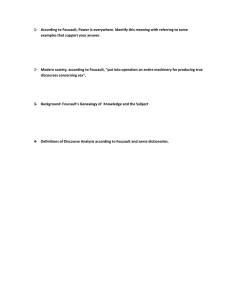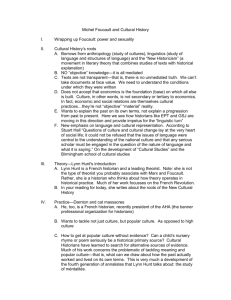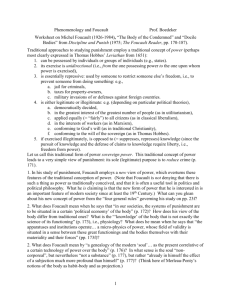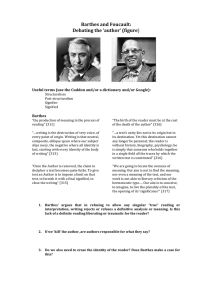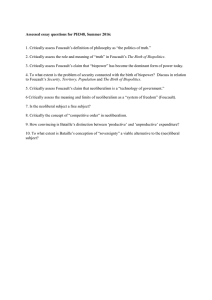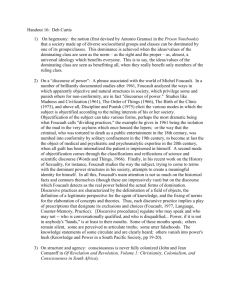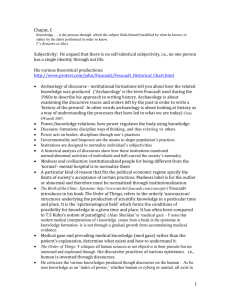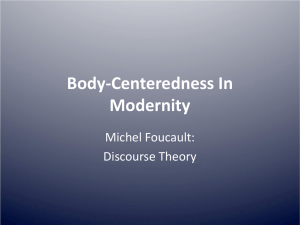Educational Philosophy and Theory, Vol
advertisement
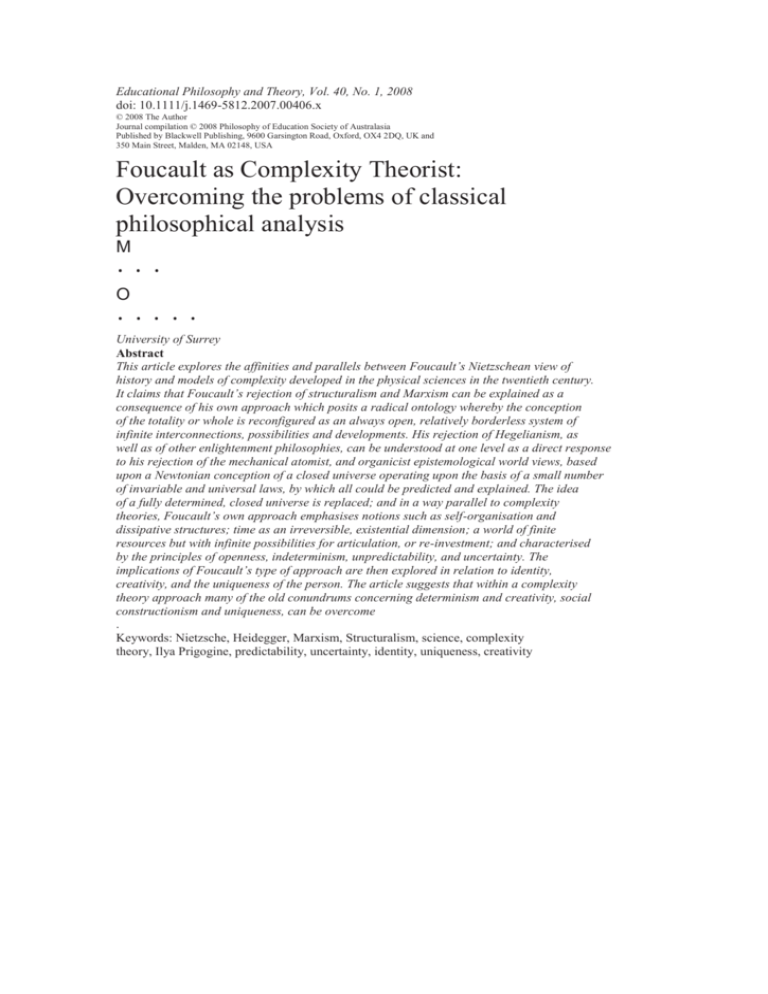
Educational Philosophy and Theory, Vol. 40, No. 1, 2008 doi: 10.1111/j.1469-5812.2007.00406.x © 2008 The Author Journal compilation © 2008 Philosophy of Education Society of Australasia Published by Blackwell Publishing, 9600 Garsington Road, Oxford, OX4 2DQ, UK and 350 Main Street, Malden, MA 02148, USA 0BEX©O0ldPX rxa21iAufXgco03Tcikrn0-adw1a7t,8iel o PU5lAnl h7KrPaitliuo cPbslehloissiplhohisyno gop fLh Etyd dauncda Ttiohne oSroyciety of Australasia FMoaurcka uOltl sasse nComplexity Theorist Foucault as Complexity Theorist: Overcoming the problems of classical philosophical analysis M O University of Surrey Abstract This article explores the affinities and parallels between Foucault’s Nietzschean view of history and models of complexity developed in the physical sciences in the twentieth century. It claims that Foucault’s rejection of structuralism and Marxism can be explained as a consequence of his own approach which posits a radical ontology whereby the conception of the totality or whole is reconfigured as an always open, relatively borderless system of infinite interconnections, possibilities and developments. His rejection of Hegelianism, as well as of other enlightenment philosophies, can be understood at one level as a direct response to his rejection of the mechanical atomist, and organicist epistemological world views, based upon a Newtonian conception of a closed universe operating upon the basis of a small number of invariable and universal laws, by which all could be predicted and explained. The idea of a fully determined, closed universe is replaced; and in a way parallel to complexity theories, Foucault’s own approach emphasises notions such as self-organisation and dissipative structures; time as an irreversible, existential dimension; a world of finite resources but with infinite possibilities for articulation, or re-investment; and characterised by the principles of openness, indeterminism, unpredictability, and uncertainty. The implications of Foucault’s type of approach are then explored in relation to identity, creativity, and the uniqueness of the person. The article suggests that within a complexity theory approach many of the old conundrums concerning determinism and creativity, social constructionism and uniqueness, can be overcome . Keywords: Nietzsche, Heidegger, Marxism, Structuralism, science, complexity theory, Ilya Prigogine, predictability, uncertainty, identity, uniqueness, creativity
